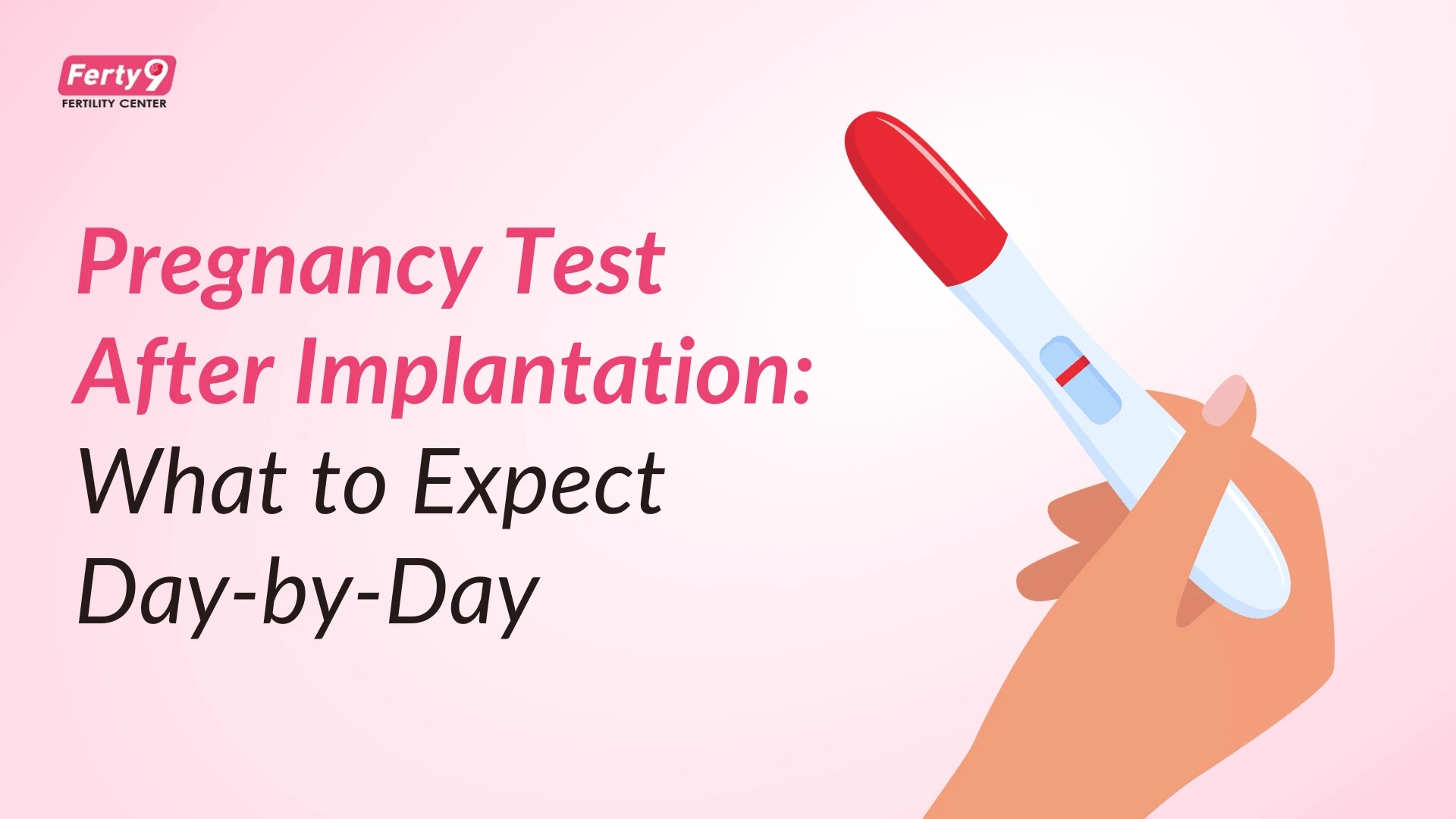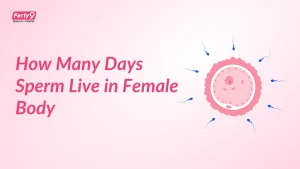The wait after an IUI or IVF cycle is one of the most anxious and hopeful times on the journey to parenthood. Once you understand that implantation—the attachment of the embryo to the uterine wall—is the key event, the next question is immediate: “How soon can I take a pregnancy test?”
At FERTY9, a leading fertility centre in India, we guide our patients every step of the way. This blog post will walk you through what happens day-by-day after implantation and explain when you can realistically expect to see that positive line on a pregnancy test.
Also Read: How Soon Can a Pregnancy Test Be Taken After Implantation?
What Happens Right After Implantation?
Implantation is the moment your body officially becomes pregnant. As soon as the embryo successfully burrows into your uterine lining, it starts to produce a crucial hormone called human Chorionic Gonadotropin (hCG).
This hCG hormone is what home pregnancy tests are designed to detect in your urine. It starts at a very low level and then, typically, doubles every 48 to 72 hours in the early days of a healthy pregnancy. Understanding this doubling process is key to knowing when to test.
A Day-by-Day Guide After Implantation
Let’s consider the day of implantation as Day 0. The exact day of implantation can vary, usually occurring between 6 to 12 days after ovulation or your IUI procedure, and 1 to 5 days after an IVF embryo transfer.
- Day 0: Implantation Occurs – The embryo attaches to the uterine wall. Your body starts producing hCG, but the level is still practically zero (below 5 mIU/mL). A pregnancy test at this point will be negative.
- Day 1: hCG Production Begins – The embryo continues to embed itself deeper. hCG is released into your bloodstream, but the level is still too low to be detected. You might have around 5-10 mIU/mL of hCG. Testing now would still show a negative result.
- Day 2: hCG Levels Rise – The hCG level continues to double. It might now be in the range of 10-20 mIU/mL. While the hormone is building up, it is likely still not enough to be detected by most home pregnancy tests available in India.
- Result: Still likely negative.
- Day 3: A Faint Possibility – Your hCG level could now be between 20-40 mIU/mL. The most sensitive home pregnancy tests claim to detect hCG at levels as low as 25 mIU/mL. If you use one of these early-detection tests with the first urine of the morning (when it’s most concentrated), you might see a very, very faint line.
- Result: A possible, but often faint, positive.
- Day 4: A Stronger Chance – hCG levels are climbing steadily and could be anywhere from 40-80 mIU/mL. The chances of getting a faint but clear positive line on a home pregnancy test are much higher today. Result: A faint positive is more likely.
- Day 5 & Onwards: The Lines Get Clearer – With hCG levels doubling continuously, they should now be well above the threshold for most standard pregnancy tests. The positive line should become clearer and darker each day you test. By now, the result is much more reliable.
Understanding the Test Results: Faint Lines vs. Strong Lines
- A Faint Line: A faint positive line, no matter how light, usually means the test has detected hCG. It’s faint because the hormone level is still low, meaning you are very early in your pregnancy.
- A Strong, Dark Line: This indicates a higher concentration of hCG in your urine, suggesting that the pregnancy is progressing well.
A Word of Caution on Early Testing
While it’s exciting to see a faint line, early testing comes with risks:
- False Negatives: Testing too early can give you a negative result even if you are pregnant, simply because your hCG levels haven’t risen enough. This can cause unnecessary heartbreak and stress.
- The “Trigger Shot” Confusion: In many fertility treatments (IUI/IVF), an hCG “trigger shot” is used. The hormone from this shot can stay in your system for up to 10-12 days. Testing during this period can give you a false positive result from the leftover medication.
The FERTY9 Recommendation: Wait for the Blood Test
While home tests can give you an early indication, they are not a substitute for a medical diagnosis. The most accurate way to confirm a pregnancy is with a Beta hCG blood test at our clinic.
This test measures the exact amount of hCG in your blood, which not only confirms the pregnancy but also helps us determine if the hormone levels are rising as they should be for a healthy pregnancy.
We know the wait is difficult, but for the most reliable result, we advise you to wait for 14 to 16 days after your procedure before coming in for your scheduled blood test. This gives your body enough time to produce a detectable and meaningful level of hCG.
Stay positive, take care of yourself, and trust the process. We are here to support you every step of the way.




























